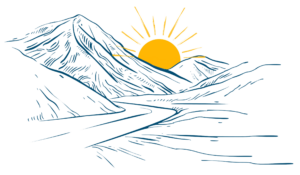In Turbulent Times, Be Quaker
“I am always cagey around Quaker history. I have no Quaker roots in my family that I know of, I have not even experienced children’s meetings or young Quaker gatherings.
There are few better ways to feel second class in a Quaker community than when reminded by another Friend of how rich and important their Quaker ancestry is.
It is perhaps no surprise really that I connect more with the early Friends – [theirs was a] time where everyone came in as an enquirer, a seeker.
In the early days of Quakers it was the message that was important.
We use convincement now to describe the formal process of membership but convincement to early Friends was a moment, an experience of being convinced of the truth; being opened up to the teachings of the Christ within.
The formal processes came later.
Membership for the most part was about keeping track of a community that was deeply persecuted – which families to support financially while members of that family were in jail.
Quakers moved from place to place, first worshiping outdoors, in public and later hidden away in houses.
Those who were convinced by the Quaker way lived it.
[…] Quakers came out of turbulent times – during the civil war and huge unrest. And even in more modern times our numbers have grown during times of unrest and war. WW1. WW2. The Falklands. To some extent the Gulf War.
We have something to offer; something in that early message; that way of responding to the inward light. To answer the call to make the world a better place from the sanctity of meeting for worship resonates with people.
[…] In turbulent times, be a Quaker.
It is something I hold onto.
Be a QUAKER
Not attend a meeting
Not become a member
BE a QUAKER
As we wrestle with different forms of worship.
Changing structures such as Area Meetings.
Asking ourselves what it means to be a Quaker holds value.
Or perhaps better than simply be a Quaker – we could say be Quaker.
Asking others to be Quaker is a more open and inviting prospect – a more radical calling than questions of time and place of worship and signing on the metaphorical dotted line of membership.”
— Jon Martin, 2022
“Reshaping our understanding of Quaker Community”

Reader Reflection
How have your relationships with other people shaped your spirituality?
"Other people have consistently provided the example for me of the spiritual life I wanted to attain. I have encountered people who could be welcoming, literally with arms open wide; who could put care and concern above tasks and accomplishments; who knew how to stay with their friends in moments of sadness and grief; who knew how to listen without judgment and encourage without falseness. Some of these others have been examples of what is possible; some have been actual teachers and mentors with whom I could wonder about the mechanism of becoming more faithful. Either way, I would not know what I want my spiritual life to be—or know what it could be—without their presence in my life." Dan K., Richmond, IN, USA
"This query is not an easy one for me. While I cherish the intimacy of worshiping alone, there's a part of me that yearns for the shared experience of worshiping with others in person. While online opportunities offer some connection, they can't fully replicate the energy of a group gathered in the same physical space.
However, I've come to recognize that many of my most profound spiritual experiences have been nurtured through relationships. Sometimes it's only upon reflection that I fully appreciate the impact these connections have had on my spirituality."
Sarah S., USA
"I came to the Friends from Catholicism. There’s a lot I miss about the RCC — the liturgy, the Eucharist, the incense.
But with the Friends I found a group of people who loved me that I had never found elsewhere. So relationships have shaped my spirituality significantly."
The Queer Quaker (response via Twitter)
Next Week’s Query
Who belongs in Quaker community?

This Week’s Messages
Brothering the Souls of Others
Our Highest and Holiest Ideals
As Individuals, We See Only Partially
Build Afresh the Fires of Inspiration
The Spiritual Gifts of Others
A Gathered Community









